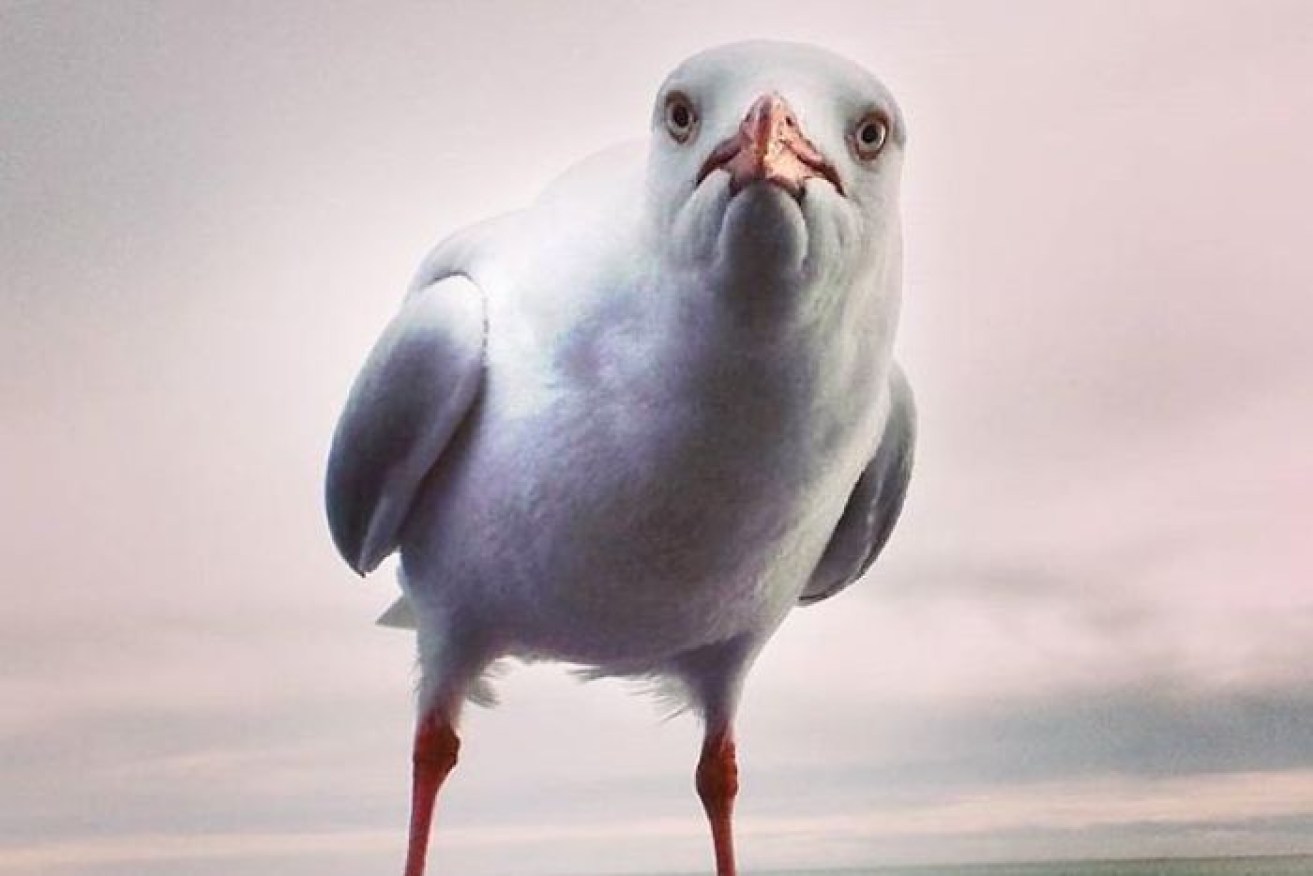Seagulls infected with drug-resistant E.coli bacteria: Study

It is the first study to find that seagulls can be harmful to humans. Photo: ABC
More than a fifth of seagulls tested in a study across Australia have been found carrying bacteria that is resistant to commonly-used antimicrobial drugs and can potentially cause serious infections in humans.
Researchers believe the silver gulls became infected with versions of the E.coli bacteria when they scavenged in garbage tips or sewage areas and came into contact with human waste, including faeces.
The bacteria are similar to antibiotic-resistant superbugs that have infected people in hospitals and nursing homes, although in this case the risk to humans is believed to be considerably lower.
The findings, by a team from Murdoch University in collaboration with the NSW Department of Primary Industries, the University of Adelaide and the Statens Serum Institut in Denmark, have been published in the Journal of Antimicrobial Chemotherapy.
Murdoch University microbiologist Sam Abraham collected the droppings of 562 seagulls from across Australia and said it was the first study to establish the birds carried drug-resistant E.coli that could harm humans.
“Seagulls act as ecological sponges [bio-accumulators] and we have earmarked them as a potential reservoir for agents that may cause human disease,” he said.
The study found 21.7 per cent of the seagulls were resistant to cephalosporins and 23.8 per cent to fluoroquinolones, commonly used antimicrobial drugs.
They also found two samples, one at Cottesloe Beach in Perth and the other at Altona beach in Melbourne, carrying bacteria resistant to colistin, a last-resort drug to fight antimicrobial resistant infections.
“Most of the drug-resistant bacteria we are finding from gulls are similar to the ones that we see in humans causing disease,” Dr Abraham said.

Microbiologist Sam Abraham says seagulls act as ecological sponges. Photo: ABC
No ‘direct threat’ from contact with seagulls
Murdoch University veterinary virologist Mark O’Dea said it was extremely unlikely people would become sick after coming into contact with seagulls, especially if they washed their hands.
It was a different scenario to superbugs in hospitals, which attacked the already-weakened immune systems of people.
But Dr O’Dea said if seagull faecal matter was somehow ingested, it could cause infections.
“We’re talking about things like urinary tract infections, in severe cases things like sepsis, so blood infections,” he said.
“[But] this circulating at the present time in the bird population, as it stands, isn’t a direct threat to humans.”
The research paper said human waste, wastewater treatment facilities and livestock waste were considered hot spots for the drug-resistant E.coli bacteria.
“Places [where] sewage, nappies, or incontinence pads from nursing homes [accumulate], like waste dumps where a lot of human sewage and food waste gets mixed, those areas are where the gulls go for feeding and foraging,” Dr Abraham said.
“These areas are potential pathways, we think.”

Virologist Mark O’Dea says the bacteria could cause urinary tract or blood infections. Photo: ABC
Bacteria may spread to food-producing animals
Once the seagulls were infected, the bacteria could potentially spread.
“Gulls are often observed to share roosting locations with other bird species, such as the little tern, which has a worldwide distribution and migration pathways extending between Asia and Australia,” the study noted.
“Additionally, they also inhabit tidal lagoons and wetlands with ducks and wading birds, which may then travel further inland to farming regions.
“This increases the possibility of transferring these resistant clones to food-producing animals, either via direct contamination of feed and water, or via a ‘leapfrog’ effect through other aquatic birds, which are not as coastal centric.”
The research team wants to expand its study to better understand where seagulls are picking up the bacteria and the potential for them to spread.
They also want to examine other birds, such as ibis, which also scavenge in waste dumps, and ducks.
Dr Abraham said local, state and federal government agencies needed to work together to contain the problem, and develop ways to better handle human waste and sewage.








